Innovative Solutions for Efficient Waste Management
Date Posted:29 August 2024
By integrating smart bins, recycling stations, composting programs, digital tracking systems, eco-friendly supplies, employee education, and professional partnerships, businesses can significantly reduce their environmental impact and enhance operational
Efficient waste management is crucial for any workplace aiming to promote sustainability, improve operational efficiency, and comply with environmental regulations. With increasing awareness about the environmental impact of waste, innovative solutions are emerging to tackle this issue effectively. Here’s a look at some cutting-edge strategies for managing waste in the workplace.
1. Smart Bins and Sensors
Smart bins equipped with sensors are revolutionising waste management in workplaces. These bins use technology to monitor fill levels and notify maintenance staff when they need to be emptied. Here’s how they work:
- Sensors: Installed inside the bins, these sensors detect the fill level and send alerts when the bin is nearly full.
- Data Analytics: Smart bins collect data on waste generation patterns, helping businesses optimise waste collection schedules and reduce unnecessary pickups.
- User-Friendly Interface: Many smart bin systems come with an app or online platform for easy monitoring and management.
By reducing the frequency of unnecessary waste collection and preventing overflow, smart bins enhance efficiency and hygiene in the workplace.
2. Recycling Stations and Segregation
Implementing designated recycling stations within the workplace encourages employees to segregate waste properly. Clear labelling and easy-to-use compartments for different types of recyclables—such as paper, plastics, and organic waste—make recycling more accessible. Key benefits include:
- Increased Recycling Rates: Clear separation of recyclables reduces contamination and increases the amount of waste that can be recycled.
- Employee Engagement: Visible and well-organised recycling stations raise awareness and encourage participation among staff.
- Regulatory Compliance: Proper waste segregation helps businesses comply with local waste management regulations.
By making recycling easy and convenient, workplaces can significantly reduce their environmental footprint.
3. Composting Programs
For workplaces that generate a significant amount of organic waste, composting programs offer an eco-friendly solution. Setting up an on-site composting system allows for the conversion of food scraps and other organic materials into nutrient-rich compost. Here’s why it’s beneficial:
- Waste Reduction: Composting reduces the volume of waste sent to landfills, lowering disposal costs and environmental impact.
- Sustainability: The resulting compost can be used for landscaping around the workplace or donated to local community gardens.
- Employee Participation: Composting programs can involve employees in sustainability initiatives, fostering a culture of environmental responsibility.
By turning waste into a valuable resource, composting programs contribute to a circular economy.
4. Digital Waste Tracking Systems
Digital waste tracking systems provide real-time data on waste generation and management processes. These systems offer numerous advantages:
- Transparency: Real-time data allows businesses to track waste volumes, types, and disposal methods accurately.
- Optimisation: Insights from data analysis help identify areas for improvement and optimise waste management practices.
- Regulatory Compliance: Digital records ensure compliance with waste management regulations and facilitate reporting requirements.
Implementing digital waste tracking systems enhances accountability and efficiency in waste management operations.
5. Eco-Friendly Packaging and Supplies
Reducing waste at the source is one of the most effective waste management strategies. By choosing eco-friendly packaging and supplies, businesses can minimise the amount of waste generated. Consider the following:
- Biodegradable Materials: Opt for packaging made from biodegradable or compostable materials that break down naturally.
- Reusable Supplies: Encourage the use of reusable items, such as water bottles, coffee cups, and cutlery, to reduce single-use plastic waste.
- Sustainable Sourcing: Choose products made from recycled or sustainable materials to support a circular economy.
Adopting eco-friendly alternatives reduces waste and demonstrates a commitment to sustainability.




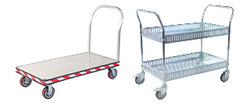


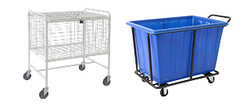
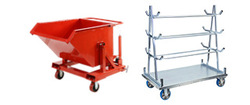



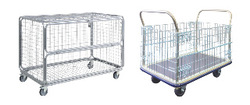

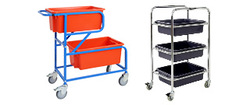


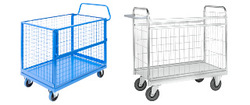




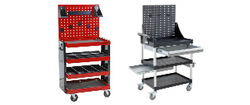
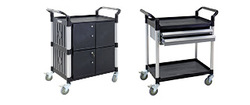





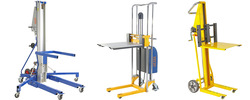







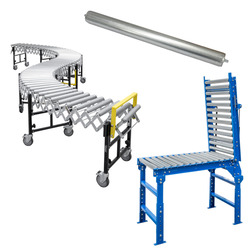
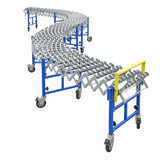



















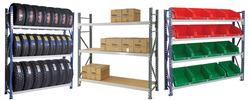
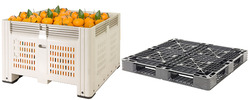


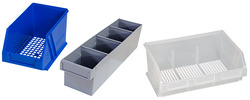

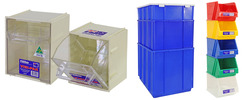




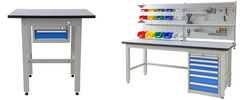








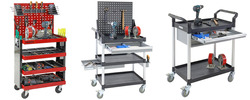

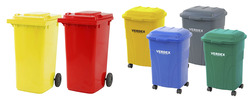






































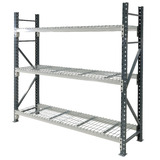












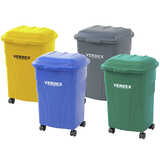


 Trolleys / Hand Trucks
Trolleys / Hand Trucks 2 Tier Trolleys
2 Tier Trolleys 3 Tier Trolleys
3 Tier Trolleys Aluminium Trolleys
Aluminium Trolleys Appliance & Hand Trucks
Appliance & Hand Trucks Cage Trolleys
Cage Trolleys Cleaning Carts & Trolleys
Cleaning Carts & Trolleys Construction Trolleys
Construction Trolleys Dollies
Dollies Foldable Trolleys
Foldable Trolleys Hospital Trolleys
Hospital Trolleys Laundry/Linen Trolleys
Laundry/Linen Trolleys Load Skates & Tow Tugs
Load Skates & Tow Tugs Mail / Office Trolleys
Mail / Office Trolleys Multi Purpose Trolleys
Multi Purpose Trolleys Multi-Tier Shelf Trolleys
Multi-Tier Shelf Trolleys Order Picking Trolleys
Order Picking Trolleys Panel Cart Trolleys
Panel Cart Trolleys Platform Trolleys
Platform Trolleys Powered Trolleys
Powered Trolleys Stainless Steel Trolleys
Stainless Steel Trolleys Tool Trolleys
Tool Trolleys Utility Carts
Utility Carts Warehouse Trolleys
Warehouse Trolleys Custom Trolleys
Custom Trolleys Lifting Equipment
Lifting Equipment Forklift Attachments
Forklift Attachments Jib Attachments
Jib Attachments Lifting Hoists & Pallet Hooks
Lifting Hoists & Pallet Hooks Manual Stackers & Lifters
Manual Stackers & Lifters Pallet Jacks
Pallet Jacks Pallet Lifters
Pallet Lifters Pallet Rotators & Dispenser
Pallet Rotators & Dispenser Powered Pallet Trucks & Electric Lifters
Powered Pallet Trucks & Electric Lifters Scissor Lift Trolleys and Tables
Scissor Lift Trolleys and Tables Conveyor Equipment
Conveyor Equipment Conveyor Frames
Conveyor Frames Conveyor Stands
Conveyor Stands Roller Conveyors
Roller Conveyors Skate Wheel Conveyors
Skate Wheel Conveyors Access Equipment
Access Equipment Container & Yard Ramps
Container & Yard Ramps Step Stools & Ladders
Step Stools & Ladders Work Platforms & Crane Cages
Work Platforms & Crane Cages Drum Handling
Drum Handling Drum Storage & Bunding
Drum Storage & Bunding Drum Trolleys & Lifters
Drum Trolleys & Lifters Forklift Drum Handling
Forklift Drum Handling Containment & Spillage
Containment & Spillage Aerosol Cans Storage Cages
Aerosol Cans Storage Cages Bunded Pallets & Storage
Bunded Pallets & Storage Corrosive Goods Storage Cabinets
Corrosive Goods Storage Cabinets Flammable Liquid Cabinets
Flammable Liquid Cabinets Forklift Gas Storage Cages
Forklift Gas Storage Cages Gas Cylinder Storage
Gas Cylinder Storage Site Storage
Site Storage Spill Kits
Spill Kits Stillage Cages
Stillage Cages Waste Handling
Waste Handling Bin Lifters & Tippers
Bin Lifters & Tippers Plastic Waste Bins and Carts
Plastic Waste Bins and Carts Steel Waste and Tipping Bins
Steel Waste and Tipping Bins Storage Equipment
Storage Equipment Heavy Duty Cabinets & Benches
Heavy Duty Cabinets & Benches Heavy Duty Shelving
Heavy Duty Shelving Mega Bins & Pallets
Mega Bins & Pallets Packing Benches
Packing Benches Pallet Racking Accessories
Pallet Racking Accessories Parts Trays & Stor-Pak Bins
Parts Trays & Stor-Pak Bins Pegboard & Louvre Panels
Pegboard & Louvre Panels Plastic Bins
Plastic Bins Plastic Handling Solutions Bins
Plastic Handling Solutions Bins Plastic Pallets
Plastic Pallets Stack & Nest Bins
Stack & Nest Bins Storage Cages
Storage Cages Workplace Equipment
Workplace Equipment Workbenches
Workbenches Modular Workbenches
Modular Workbenches Electric Height-Adjustable Workbenches
Electric Height-Adjustable Workbenches Floor Matting
Floor Matting Industrial Weighing Scales
Industrial Weighing Scales Pallet Wrapping & Packaging Machinery
Pallet Wrapping & Packaging Machinery Ramps
Ramps Stationery Cupboards
Stationery Cupboards Storage and Stillage Cages
Storage and Stillage Cages Tool Trolleys
Tool Trolleys Tooling Cabinets
Tooling Cabinets Wheelie Bins
Wheelie Bins Workshop Equipment
Workshop Equipment Safety Equipment
Safety Equipment Gloves and PPE
Gloves and PPE Pallet Rack Post Protectors
Pallet Rack Post Protectors Safety Barriers & Bollards
Safety Barriers & Bollards Safety Knives & Cutters
Safety Knives & Cutters Signs and Traffic Supplies
Signs and Traffic Supplies Tool & First Aid Boxes
Tool & First Aid Boxes Construction Equipment
Construction Equipment Concrete Equipment
Concrete Equipment General Site Equipment
General Site Equipment Lifting Equipment
Lifting Equipment Site Storage
Site Storage Waste
Waste  MHA's Specials
MHA's Specials











